
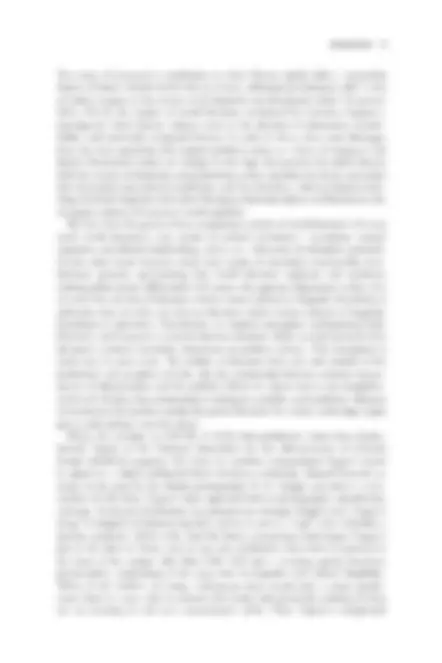
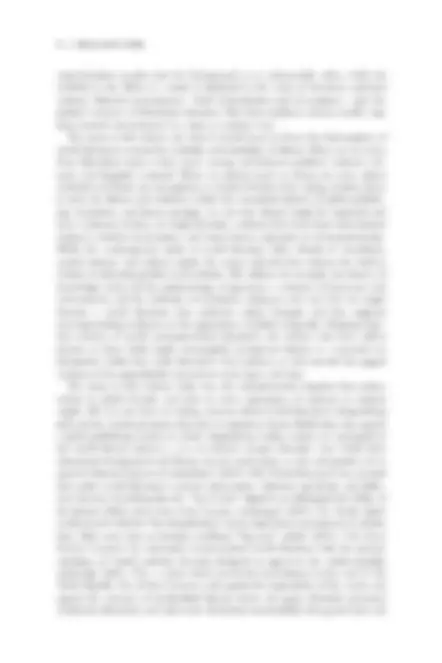
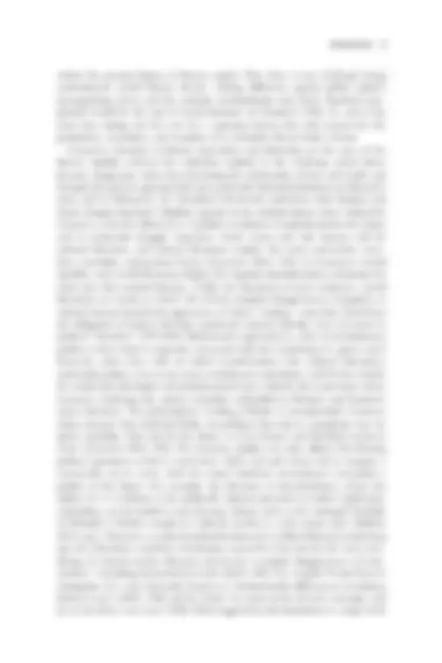
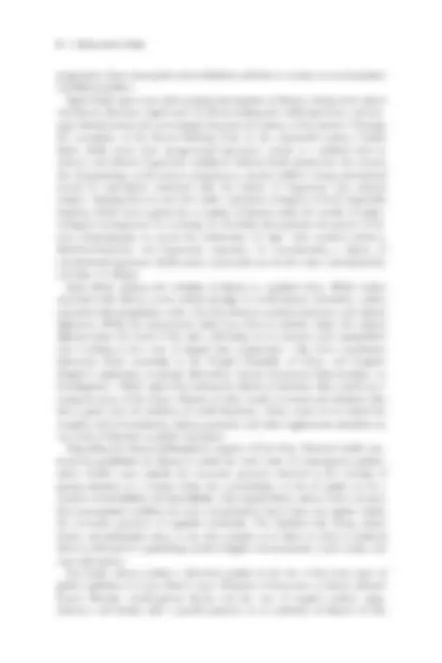
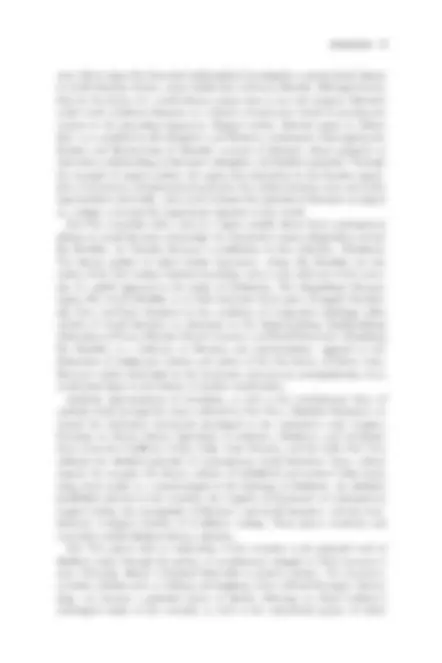
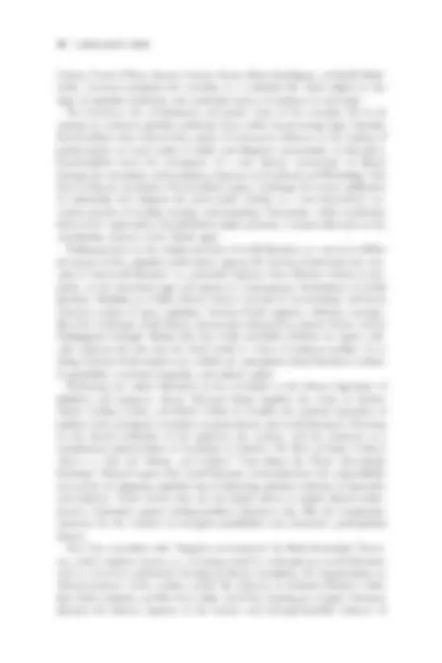


Study with the several resources on Docsity

Earn points by helping other students or get them with a premium plan


Prepare for your exams
Study with the several resources on Docsity

Earn points to download
Earn points by helping other students or get them with a premium plan
Community
Ask the community for help and clear up your study doubts
Discover the best universities in your country according to Docsity users
Free resources
Download our free guides on studying techniques, anxiety management strategies, and thesis advice from Docsity tutors
The concept of dissenting literatures in a global context, drawing inspiration from Wai Chee Dimock's idea of planetary literature. The essays collected challenge the institutionalized study of literature and propose a more just and equal approach to world literature. The document also critiques Pascale Casanova's 'World Republic of Letters' and argues for a theory that values difference and supports radical thought and resistance.
What you will learn
Typology: Lecture notes
1 / 12

This page cannot be seen from the preview
Don't miss anything!







Against the territoriality of national literatures and the reification of genres and periods by institutionalised literary studies, Wai Chee Dimock writes of a planetary literature that is ‘the enemy of the state’ (2001, 175). Texts ‘play havoc with ter- ritorial sovereignty’ (175) and, for Dimock, operate in an anarchic, asynchronic literary universe that unsettles the fiction of structure demanded by publishers and practitioners alike. Her prime example in this case is Osip Mandelstam, who famously said of literature under Stalin, ‘Poetry is respected only in this country – people are killed for it’ (cited in Mandelstam 1999, 161). Mandelstam would die in the gulag for the poems like ‘Stalin Epigram’, and the lethal significance of his work demonstrates, in Dimock’s view, literature’s fundamental extraterritoriality. That extraterritoriality, she writes, is corollary to literature thought as ‘an off-center set of vibrations, chaotic and tangential – expanding with the more or less random accretion of signifying moments, emerging at various temporal and spatial removes’ (Dimock 2001, 176). World literature, in other words, challenges stateship when it passes spatial, temporal, and linguistic borders. This is literature’s worldly effect, its rippling and polyvalent disruption within the web of uneven relations among writers, books, and readers. This is the revolutionary potential inhering in the unaccountable body of world literature today. The essays collected here take their inspiration from that revolutionary potential, asking how dissenting literatures cir- culate in a global context and how local conceptions of dissent might help us to reframe the study of world literature as a force for justice and equality. Contending with a global and ungraspable body of literary works that transgress geopolitical boundaries, circulate across diverse media, and in some cases seem even to have been ‘born translated’ (Walkowitz 2015), scholars and theorists of world literature in the twenty-first century have not widely shared Dimock’s enthusiasm for an anarchy of planetary literature. The editors of the literary magazine n+1, for example, condemn the study of world literature today as a parody of ‘a Davos
DOI: 10.4324/9780203710302-
summit where experts, national delegates, and celebrities discuss, calmly and collegially, between sips of bottled water, the terrific problems of a humanity whose predicament they appear to have escaped’ (Editors 2013, n.p.). At the core of the editors’ argument is a distinction drawn between two broad literary periods. They celebrate, on the one hand, literature from the Romantic era to the mid-twentieth century (especially anticolonial literature) that expressly challenged established hierarchies of the state. But they decry, on the other hand, the literatures of our contemporary, globalised moment. Today, they claim, the stuff of literature is abstracted and universal. Pried from the local contexts that give them specificity and political power, concepts like free speech, migration, and identity circulate in a market that values their cultural currency but forecloses their disruptive potential. Indeed, literatures unmoored from local context comprise the very nature of world literature itself in Pascale Casanova’s The World Republic of Letters. For Casanova (2004), both the translatability distinguishing world texts that wield high literary capital and the artistic autonomy evident in those that have freed themselves from the determining narratives of nation are signs of abstraction and the emptying out of specificity. The world literary texts closest to the core of Casanova’s autonomous literary field or republic either facilitate easy translation by virtue of their universality, or redefine literary modernity by virtue of their avant-garde creativity. In either case, entry into the world republic demands dis- tance from the politics of national struggle and, by extension, anticolonial strug- gle. This outline, however, contrasts starkly with the proclaimed aim of The World Republic of Letters to arm writers of the peripheries in their struggle against the cultural imperialism of the centre. The problem with Casanova’s account of world literature is well read by Christian Thorne, who argues that her ‘title is simply wrong, utterly contravened by her own argument, which describes nothing like a “world republic of letters”, with whatever faded egalitarian associations that term still has’ (Thorne 2013, 60). Rather, Thorne highlights ‘a literary world-system, neoco- lonial in effect, if rarely in intentions: stratified, full of power imbalances, “a world of rivalry, struggle, and inequality”’ – in short, an ‘empire-not-republic of letters’ (60). Casanova’s imperious world literary field not only presents us with an expanded, global canon that promises to co-opt every text under the universalising umbrella of world literature, but also instates a theory of world literature that structuralises a divide between text and the world, literature and politics. As signalled above, and as argued by Thorne, in Casanova’s hands:
world literature is the name for a certain tendency toward abstraction within the global literary system, the propensity of works aiming for an international readership to make themselves frictionless. […] Such, in a nutshell, is Casano- va’s splendid revision of the concept of Weltliteratur, which here stops func- tioning as the name for an (especially tedious) canon and instead makes its rightful contribution to a materialist history of letters. (Thorne 2013, 60–1)
2 L. Burns and K. Muth
anticolonialism recedes into the background as an unknowable other, while his celebrity in the West as a mystic is deployed in the cause of American antiracist activism. Material circumstances – both of production and of reception – alter the political valences of dissentious literature. But those political valences hardly map their material circumstances in a static or uniform way. The essays in this volume ask what it would mean to frame the interrogation of world literatures around the volatility and instability of dissent. What can we learn from dissentious texts as they move among and between political, national, cul- tural, and linguistic contexts? What can dissent teach us about our own critical methods and about our assumptions as scholars? Rather than asking whether there is room for dissent and resistance within the monetised spheres of global publish- ing, translation, and literary prestige, we ask how dissent might be expressed and how, as literary scholars, we might develop a criticism that learns from international resistance, furthers social justice, and values human expression in all its particularity. While the contemporary study of world literature often attends to circulation, market systems, and cultural capital, the essays collected here reframe the field in relation to dissenting politics and aesthetics. We address, for example, the themes of knowledge work and the epistemology of ignorance, a rhetoric of innocence and enchantment, and the aesthetics of revolution, asking in each case how we might theorise a world literature that cultivates radical thought and that supports uncompromising resistance to the apparatuses of global inequality. Bringing toge- ther scholars of world and postcolonial literatures, the volume asks how critical practice in these fields might meaningfully incorporate dissent as a corrective to interpretive habits that erode literature’s local potency or that smooth the jagged contours of its unpredictable movement across space and time. The essays in this volume resist, too, the entrepreneurial impulses that reduce writers to global brands, and texts to mere expressions of national or cultural capital. We are not alone in raising concerns about world literature’s despecifying pull and the market pressures that seek to exploit it. Aamir Mufti takes aim against a global publishing market in which Anglophone Indian writers are ‘packaged in the world literary system […] as an instance of pure diversity’ even while their educational background and literary success marks them as ‘the end product of an epochal historical process of assimilation’ (2010, 492). David Damrosch has worried that under world literature’s current rejuvenation, historical specificity and differ- ence become something like the ‘“local color” tipped in to distinguish the lobby of the Jakarta Hilton from that of its Cancún counterpart’ (2003, 17). Emily Apter condemns the field for ‘flaccid globalisms’ whose superficial commitment to alterity does ‘little more than to buttress neoliberal “big tent” syllabi’ (2013, 7–8). Even Pascale Casanova has associated commercialised world literature with the generic repetition of ‘tested aesthetic formulas designed to appeal to the widest possible readership’ (2004, 171) – a claim which reveals the inconsistency at the core of The World Republic. For all that Casanova rails against the imperialism of the centre and against the currency of standardised literary forms, she quite obviously promotes modernist abstraction and with it the frictionless translatability that grants texts and
4 L. Burns and K. Muth
writers the greatest degree of literary capital. This, then, is one challenge facing contemporary world literary theory: valuing difference against global capital’s homogenising forces and the aesthetic standardisation that Erich Auerbach pro- phesied would be the end of world literature (cf Auerbach 1969, 3), and at the same time setting out the case for a capacious theory that will account for the production, circulation, and reception of an infinitely diverse body of texts. Casanova’s elevation of literary innovation and abstraction to the core of her literary republic eschews the radicalism implicit in the challenge noted above because, simply put, rather than theorising the relationality of text and world, and through that process opening both up to potential deterritorialisations (in Dimock’s sense and in Deleuze’s), her theoretical framework entrenches their dualism and firmly relegates literature’s dissident capacity to the aesthetic sphere alone. Indeed for Casanova, as for the editors of n+1, politics as resistance is expressly tied to the nation and to nationalist struggle. Literature which enters into this domain will be national literature, and national literatures employ ‘the most conservative narra- tives, novelistic, and poetical forms’ (Casanova 2004, 199). In Casanova’s world republic, only world literatures display the requisite depoliticisation and purity for entry into that rarefied domain. Unlike the literatures of local resistance, world literatures are works in which ‘the almost complete disappearance of popular or national themes [marks] the appearance of “pure” writing – texts that, freed from the obligation to help to develop a particular national identity, have no social or political “function”’ (199–200). Behind such arguments is a view of revolutionary politics as that which is expressly concerned with the reordering of a given social hierarchy rather than with its radical transformation: like national literatures, nationalist politics, even in its most revolutionary articulation, will be the vehicle for readymade ideologies and predetermined aims. Indeed, this is precisely where Casanova challenges the notion of politics embedded in Deleuze and Guattari’s minor literature. The philosophers’ reading of Kafka is wrongheaded, Casanova claims, because ‘they hold that Kafka was political, but only in a prophetic way; he spoke of politics, but only for the future, as if he foresaw and described events to come’ (Casanova 2004, 204). For Casanova, politics can only address ‘the burning political questions of [one’s own] time’ (204) and will always fail to imagine a community yet to come. And yet certain historical circumstances necessitate a politics of the future. For example, the literature of decolonisation, which the editors of n+1 celebrate as the politically vigorous precursor to today’s tepid post- colonialism, can be lauded as such because authors, such as the ‘outraged’ Rushdie of Midnight’s Children, sought to ‘radically reorder […] the nation state’ (Editors 2013, n.p.). However, as anticolonialist theorists such as Albert Memmi noted long ago, the alienation caused by colonisation cannot be overcome by the mere reor- dering of colonial society. Memmi calls for the ‘complete disappearance of colo- nization – including the period of revolt’ (2003, 185). Or, consider Frantz Fanon’s anticipation of a ‘new humanity’ based on ‘a fundamentally different set of relations between men’ (2001, 198) and for which ‘we must work out new concepts, and try to set afoot a new man’ (255). Both suggest that decolonisation is a stage to be
Introduction 5
to bring to light that ‘literary “registration”’, a task that accordingly ‘does not (necessarily) involve criticality or dissent’ (20). Evident in these materialist approa- ches to contemporary world literature is the influence of Frederic Jameson, or at least those aspects of Jameson’s symptomatic method which have been questioned by critics like Stephen Best and Sharon Marcus, or Rita Felski. In The Limits of Critique, Felski argues that the ‘critical mood’ (2015, 20) or ‘stance’ (132) common to the practice of symptomatic reading amounts to a ‘digging down’ (53), in which the critic makes the text reveal its subtextual complicity with – or subversion of – differential power, capitalist ideology, gender normativity, or what have you. Channelling Ricoeur and Latour, she advocates deprioritising the ‘hermeneutics of suspicion’ and privileging instead an attitude that treats texts like non-human actors, deprioritising ‘the “de” prefix’ and privileging instead ‘the “re” prefix: its ability to recontextualize, reconfigure, or recharge perception’ (17, emphasis in original). Best and Marcus likewise question symptomatic reading, advocating instead for ‘surface reading’, which attends to ‘what is evident, perceptible, apprehensible in texts; what is neither hidden nor hiding’ (2009, 9). ‘A surface’, they insist, ‘is what insists on being looked at rather than what we must train ourselves to see through’ (9, emphasis in original). Symptomatic reading, in both accounts, not only makes the literary text a secondary phenomenon of the more fundamental reality of global capitalism, but, as Felski cautions, prefigures the work of criticism as a process of discovering precisely what we expect: careful literary analysis will reveal the hidden structures of an economy to which the text is wholly blind. Few of the con- tributors gathered in this collection would consider themselves to be ‘postcritical’, indeed we suggest that there is good reason to demand more of ‘surface reading’. Nonetheless, the authors gathered here, by injecting the concept of dissent into world literary theory, upend the question of whether texts are mere epiphenomena of the capital systems that produce them. By looking head-on at dissent, we don’t seek out subversion in margins or subtexts but, rather, look for challenge and protest in texts themselves. Further, we engage critical practices that learn from dissent and that open space for revolutionary novelty. In our view, world literature need not be global in the pejorative sense; it can also be internationalist. Instead of focusing on circulation, market systems, and cultural capital, the essays collected here ask how theorising world literature in light of dissenting politics and aesthetics might cultivate radical thought and support uncompromising resistance to the apparatuses of global inequality. With this key aim in mind, World Literature and Dissent, adopts a two-part structure that first interrogates how dissent could inform the theoretical frameworks by which we approach world literature. Second, we describe some lessons learned from dissenting literatures themselves. Part One, ‘Dissent (in theory)’, sets out the theoretical dimensions of dissent in its historical and contemporary articulations as the basis for a reformulated understanding of world literature. Contributors address the epistemology of ignorance and the rhetoric of innocence, the biopo- litics of protest, the commodification of attention, the disruption of literary reflexivity. Approaching the subject of dissent from philosophical or theoretical
Introduction 7
perspectives, these essays posit various dissident aesthetics as curative to economisation and illiberal politics. Djelal Kadir opens our wide-ranging interrogation of dissent, asking what critical and literary discourse might teach us about resisting the wilful ignorance and stra- tegic disinformation that increasingly dominate the history of the present. Through the exemplum of the Know-Nothing Party in the nineteenth-century United States, Kadir traces how ‘programmed ignorance’ works as a political tool to advance and obscure hegemonic ambitions. Indeed, Kadir points out, the current rise of agnotology, or the science of ignorance, merely codifies ‘a long and tortured record of antecedents entwined with the history of hegemony and colonial empire’. Arguing that we now live under a planetary resurgence of such imperialist impulses, Kadir warns against the co-option of dissent under the mantle of episte- mological management. In so doing, he forcefully demonstrates the power of lit- erary historiography to unveil the imbrication of ‘spin’ with material violence, disenfranchisement, and hegemonic expansion. In reconstructing a history of manufactured ignorance, Kadir makes a powerful case for the value, and indeed the necessity, of critique. Katie Muth explores the volatility of dissent as a political force. While writers associated with dissent accrue cultural prestige in world literary circulation, writers associated with propitiation walk a fine line between rarefied autonomy and cultural diplomacy. While the autonomous author lays claim to aesthetic virtue, the cultural diplomat plays the hand of the state, subverting art to someone else’s geopolitical aims. Looking at two cases of alleged state compromise – Mo Yan’s conciliatory statements about censorship in the People’s Republic of China and Langston Hughes’s capitulation to Joseph McCarthy’s Senate Permanent Subcommittee on Investigations – Muth argues that looking for dissent in literature often entails reco- vering the traces of its erasure. Dissent, in other words, is evental and relational. But this is good news for students of world literatures, whose work it is to detail the complex web of translations, elisions, paratexts, and other supplements attendant on any work of literature in global circulation. Expanding the literary-philosophical enquiry of Part One, Dominic Smith con- fronts the possibilities for dissent in within the ‘total noise’ of contemporary globali- sation. Smith’s essay exploits the economic grammar inherent in the concept of paying attention in a context where the accumulation or loss of capital can be a measure of (in)visibility and (in)audibility. Like unpaid labour, silence is the necessary but unrecognised condition for such accumulations, but it does not register within the economic grammar of capitalist modernity. The dissident task facing critical theory and philosophy, then, is one that compels us to listen to what is rendered silent or obscured in a globalising world of digital communication, social media, and mass information. For Smith, silence enables a subversive politics in the face of the total noise of global capitalism; in Lorna Burns’s essay ‘Rhetoric of innocence or literary dissent? Franco Moretti, world-systems theory and the case of magical realism’, gaps, absences, and alterity offer a parallel gateway to an aesthetics of dissent. In this
8 L. Burns and K. Muth
Césaire, Frank O’Hara, Jeremy Cronin, Reina María Rodríguez, and Kirill Med- vedev, Lawrence proposes the everyday as a contested site, both subject to the logic of capitalist modernity and a potential source of resistance to that logic. For Lawrence, the revolutionary and poetic value of the everyday lies in its capacity to confront capitalist modernity from within its governing logic; Anindya Raychaudhuri takes forward this notion of immanent resistance in his reading of protest poetry on social media in Indian and diasporic communities. In this piece, Raychaudhuri traces the emergence of a new literary community of dissent through the circulation and translation of poems via Facebook and WhatsApp. This form of literary circulation, Raychaudhuri argues, challenges the secure attribution of authorship and refigures the poet–reader relation as a non-hierarchical, co- creative practice of reading, sharing, and translating. This poetry, while nonetheless tied to tech corporations and globalised capital, presents a counter-discourse to the anti-Muslim rhetoric of the Hindu right. Putting pressure on the utopian promise of world literature as a means to sublate the trauma of the capitalist world system, Ignacio M. Sánchez Prado poses the con- cept of ‘anti-world literature’ as a powerful response, from Mexican writers in par- ticular, to the theoretical gaps and aporias in contemporary theorisations of world literature. Building on Cristina Rivera Garza’s concept of ‘necrowriting’ and Sayak Valencia’s notion of ‘gore capitalism’, Sánchez Prado explores a Mexican necropo- litics that challenges world literary frameworks informed by systems theory and by Heideggerian thought. Writers like Sara Uribe and Julián Herbert, he argues, radi- cally undercut the idea that the lived world is a form of resistance politics. In so doing, Sánchez Prado impels us to rethink our assumptions about literature’s relation to geopolitics, economic inequality, and cultural capital. Returning our critical discussion to the revolution as the literary figuration of dissident and resistance, Sharae Deckard brings together the work of Amitav Ghosh, Lindsey Collen, and Merle Collins to consider the aesthetic figuration of political (and ecological) revolution in postcolonial and world literatures. Drawing on the shared symbolism of the typhoon, the cyclone, and the hurricane as a metaphorical representation of revolution in Ghosh’s The River of Smoke, Collen’s There is a Tide and Mutiny, and Collins’s ‘Tout Moun Ka Pléwé (Everybody Bawling)’, Deckard argues that world literature scholarship bears the responsibility not merely of critiquing capitalism but of disclosing subaltern histories of repression and resistance. These novels, then, do not simply reflect or register dissent under- stood as frustration against existing political structures, but offer the imaginative resources for the creation of insurgent possibilities and alternative, postcapitalist futures. Part Two concludes with ‘Negative enchantment’ by Mads Rosendahl Thom- sen, which explores trauma as a recurring motif in contemporary world literature and as a means to understand, through its literary inscription, the fragmentation or ‘disenchantment’ of the modern world. By reference to Roberto Bolaño’s 2666 , Ben Okri’s Starbook, and Mo Yan’s Shifu, You’ll Do Anything for a Laugh, Thomsen discusses the literary response to the trauma and incomprehensible violence of
10 L. Burns and K. Muth
world history, and argues that its resistance lies in literature’s capacity to imagine paradoxical connectivity and precarious coherence as a respite to the grand, universal narratives of modernity. By shifting the frame on world literature as a field, the essays collected in World Literature and Dissent offer fresh perspectives on the aesthetics of politics and the politics of aesthetics. They intervene in a set of debates too often distanced from contemporary questions of global justice and, increasingly, caught up in descriptive historicisms that stand removed from affective, moral, and ethical interests. Contrary to the tendency toward taxonomy and description, scholars of world literature, we argue, felicitously positioned to converse across borders both national and disciplinary, can and must be dissidents.
Works cited
Apter, Emily. 2013. Against World Literature: On the Politics of Untranslatability. London: Verso. Auerbach, Erich. 1969. ‘Philology and Weltliteratur’. Trans. Marie Said and Edward Said. The Centennial Review 13(1): 1–17. Best, Stephen and Sharon Marcus. 2009. ‘Surface Reading: An Introduction’. Representations 108(1): 1–21. Burns, Lorna. 2015. Contemporary Caribbean Writing and Deleuze: Literature Between Post- colonialism and Post-Continental Philosophy. London: Continuum. Casanova, Pascale. 2004. The World Republic of Letters. Trans. M. B. DeBevoise. Cambridge, MA: Harvard University Press. Damrosch, David. 2003. What is World Literature? Princeton and Oxford: Princeton Uni- versity Press. Dimock, Wai Chee. 2001. ‘Literature for the Planet’. PMLA 116(1): 173–188. Du Bois, W. E. B. 1929. ‘A Message to the American Negro from Rabindranath Tagore’. The Crisis (October): 333–334. Editors. 2013. ‘World Lite: What is Global Literature?’. n+1 17. Available at: https://np lusonemag.com/issue-17/the-intellectual-situation/world-lite/ (Accessed 15 March 2018). Fanon, Frantz. 2001. The Wretched of the Earth. Trans. Constance Farrington. London: Pen- guin Classics. Farebrother, Rachel. 2012. ‘The Lesson Which India is Today Teaching the World: Nationalism and Internationalism in The Crisis, 1910– 1934 ’. Journal of American Studies 46(3): 603–623. Felski, Rita. 2015. The Limits of Critique. Chicago and London: University of Chicago Press. Jameson, Fredric. 2002. The Political Unconscious: Narrative as a Socially Symbolic Act. London and New York: Routledge. Lazarus, Neil. 1999. Nationalism and Cultural Practice in the Postcolonial World. Cambridge: Cambridge University Press. Mandelstam, Nadezhda. 1999. Hope Against Hope: A Memoir. Trans. Max Hayward. New York: Modern Library. Memmi, Albert. 2003. The Colonizer and the Colonized. Trans. Howard Greenfeld. London: Earthscan.
Introduction 11